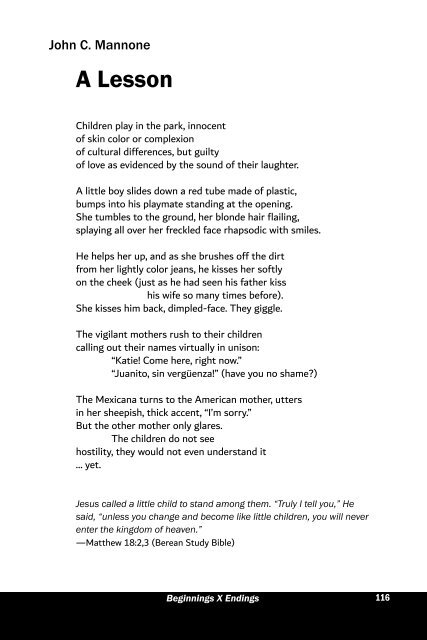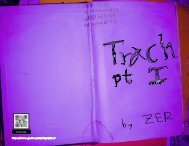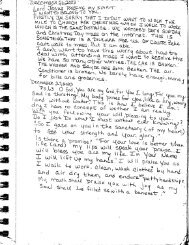Windward Review Vol. 20 (2022): Beginnings and Endings
"Beginnings and Endings" (2022) challenged South Texas writers and beyond to narrate structures of beginnings and ends. What results is a collection of poetry, prose, hybrid writing, and photography that haunts, embraces, and consoles all the same. Similar to past WR volumes, this collection defies easy elaboration - it contains diverse tones, languages, colors, and creative spaces. Creative pieces within the text builds upon others, allowing polyvocal narratives to interlock and defy the logic of 'beginning-middle-end'. By the end of this collection, you will neither sense nor crave the finality that a typical text brings. Instead, you will be inspired to learn and create beyond a narrative linear structure. Your reading and support is sincerely appreciated.
"Beginnings and Endings" (2022) challenged South Texas writers and beyond to narrate structures of beginnings and ends. What results is a collection of poetry, prose, hybrid writing, and photography that haunts, embraces, and consoles all the same. Similar to past WR volumes, this collection defies easy elaboration - it contains diverse tones, languages, colors, and creative spaces. Creative pieces within the text builds upon others, allowing polyvocal narratives to interlock and defy the logic of 'beginning-middle-end'. By the end of this collection, you will neither sense nor crave the finality that a typical text brings. Instead, you will be inspired to learn and create beyond a narrative linear structure. Your reading and support is sincerely appreciated.
You also want an ePaper? Increase the reach of your titles
YUMPU automatically turns print PDFs into web optimized ePapers that Google loves.
John C. Mannone<br />
A Lesson<br />
Children play in the park, innocent<br />
of skin color or complexion<br />
of cultural differences, but guilty<br />
of love as evidenced by the sound of their laughter.<br />
A little boy slides down a red tube made of plastic,<br />
bumps into his playmate st<strong>and</strong>ing at the opening.<br />
She tumbles to the ground, her blonde hair flailing,<br />
splaying all over her freckled face rhapsodic with smiles.<br />
He helps her up, <strong>and</strong> as she brushes off the dirt<br />
from her lightly color jeans, he kisses her softly<br />
on the cheek (just as he had seen his father kiss<br />
his wife so many times before).<br />
She kisses him back, dimpled-face. They giggle.<br />
The vigilant mothers rush to their children<br />
calling out their names virtually in unison:<br />
“Katie! Come here, right now.”<br />
“Juanito, sin vergüenza!” (have you no shame?)<br />
The Mexicana turns to the American mother, utters<br />
in her sheepish, thick accent, “I’m sorry.”<br />
But the other mother only glares.<br />
The children do not see<br />
hostility, they would not even underst<strong>and</strong> it<br />
… yet.<br />
Jesus called a little child to st<strong>and</strong> among them. “Truly I tell you,” He<br />
said, “unless you change <strong>and</strong> become like little children, you will never<br />
enter the kingdom of heaven.”<br />
—Matthew 18:2,3 (Berean Study Bible)<br />
<strong>Beginnings</strong> X <strong>Endings</strong><br />
116








